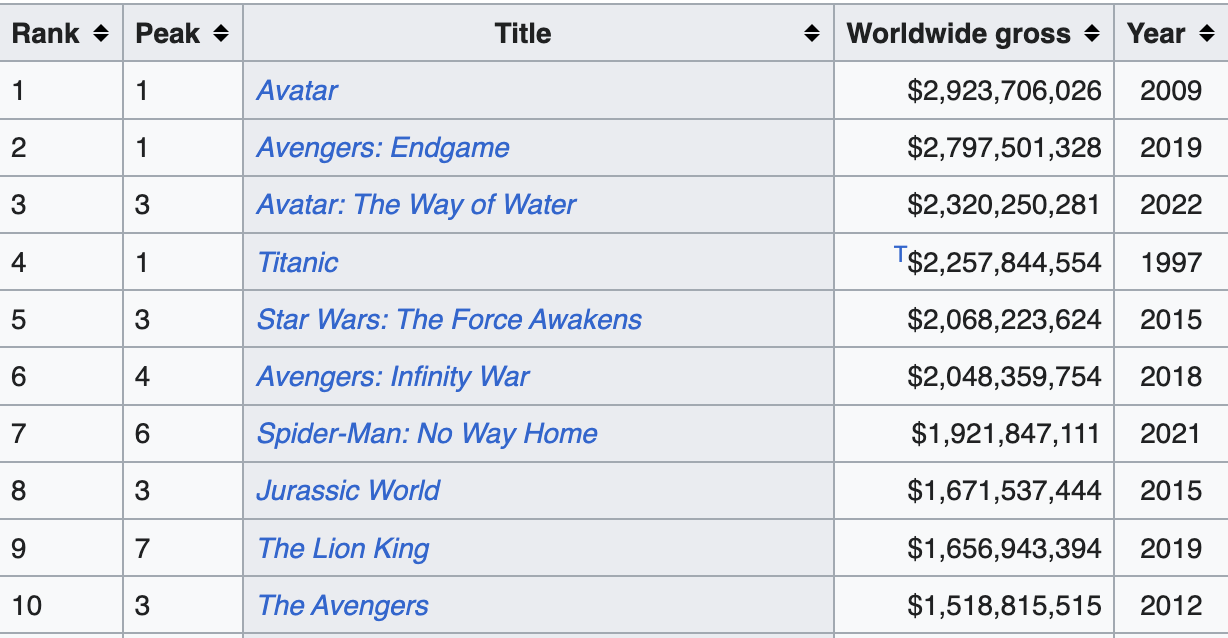Stories of Good and Evil are now Outdated
Oct 02, 2025
The Entertainment industry stuck in an old paradigm.
Writers in all genre’s are creating complex villains and heroes that have light and dark “sides” but this is like saying, “I really hate when people hate other people.” It means that you are in a paradigm. And the paradigm is binary focusing on degrees of gray. They aren’t able yet to step out of the paradigm and see that there are so many other options.
Back to Hollywood for a moment.
Look at the list of highest grossing movies of all time.

All of them have good and evil at their foundation, and generally good “winning over” evil. Evil, in the case of the movies made more recently, trends toward the complex. The “bad guys” have solid reasons for doing what they do:
Thanos believes that all problems stem from overpopulation. Solution: snap your fingers and 3 billion people disappear.
Miles Quarich, the primary antagonist in Avatar, is doing his job—and his job is to protect the “civilized” from the dangers of Pandora. That old chestnut.
We give our heroes mental health challenges or bad thoughts. Batman is a psychological mess. Dexter is a serial killer that only kills bad guys. Even Sauron, the literal devil in Lord of the Rings, believes that chaos is the true enemy, and that ultimate control is the solution.
We like to sympathize with our villains.
We also like to be disappointed in our heroes, because then we can relate to them. We can align their stories with our own:
We fall short of our expectations of ourselves.
We sometimes do the wrong thing. We are trying, but sometimes its just really hard. And then sometimes, against all odds, we nail it. And it feels really good.
These are all real things, and when we watch movies, read books, listen to music, we get swept into versions of the same thing—but more and more we are not happy with the good/evil way of looking at things. But when we are stuck in a paradigm it is very challenging to avoid being hypocritical.

We criticize people for being critical.
We wag our fingers at people who are “judgy.”
We give someone the finger for cutting us off in traffic and then feel validated when we need to cut someone else off. And then we judge ourselves for doing that. Maybe.
All of this way of seeing the world is within a paradigm that assumes there is a “right” and “wrong” way of being. It assumes there is good behavior and bad behavior. There are all the ways we can reinterpret the same binary:
connected to divine—not connected to the divine
authentic—inauthentic
in the flow—in our resistance
From my perspective, it is all the same thing and all working within the same paradigm. But there are so many paradigms!
One of them is the storyteller’s way.
For the storyteller, good characters and bad characters are options. Well tell their stories and then “finish” and move onto another story with a different paradigm. Maybe a story about the Prodigal Son, or Yudhishthira gambles his family’s future, or we dive into the work of Cormac McCarthy and explore despicable characters trying to survive in a foreign land.
This is one of the gifts of practicing intuitive storytelling: navigating the multiverse without judgment or even understanding it. We might not “get it” but we tell it, because we know in our bones that this a way of playing the game. We act. We do. We participate. We apologize. We celebrate. We grieve. And we keep telling.

And we do this knowing full well it is all story. All storytelling.
That the world is made of stories, and as storytellers, we are participating.
There is no goal beyond telling. There is no right action beyond standing in our story and taking responsibility for it. But what if we do something really bad? What if we hurt someone? What if we offend someone?
Well, in my experience, we keep participating.
We see the consequences of our storytelling and choose how we want to respond. In my case, I like to make amends. I love taking responsibility and then healing wounds. I love developing community and mending fences and “doing the next right thing.”
Does that mean we should do that?
In my experience, we don’t unless that is the story you want to tell. The point is not that good is right and evil exists and bad guys should or shouldn’t be punished. Those are things that are happening in the container. In the paradigm.
The point is that the paradigm I live in, as an intuitive storyteller, is that I get to change paradigms.
I get to dip in and move on. I get to forgive, to mend, to dare, to act, and ultimately to tell. I get to tell.
Join a community of Storytellers and receive lots of free tools and courses. I'd love to meet you!

